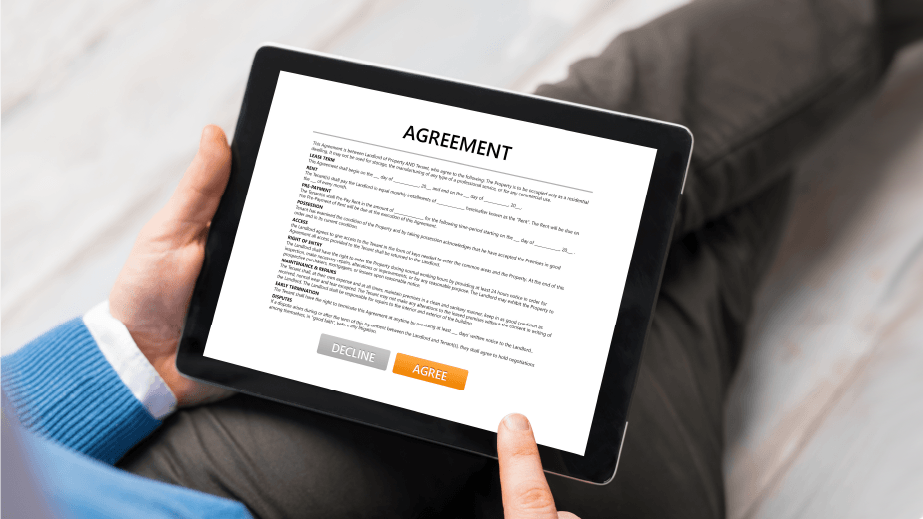Many in the lending community still harbor reservations over the use of electronic signatures and remote online notarizations. This article is intended to provide a brief overview of the benefits of using this technology and the legal foundation supporting its use. Hopefully, this background raises your comfort level and moves you to secure the benefits of these process improvements for your lending institution and its customers.
Lender:
- Delivers unique marketing differentiator & competitive advantage
- Efficiency and cost gains by eliminating paper!
- The verification process is automated and documented for stricter control
against identity theft and fraud - Recordings occur more quickly, resulting in lien priorities being secured more quickly
- Improved data & document integrity, compliance & control
- No trailing or missing documents, pages or signatures
- Process of selling to Fannie and Freddie reduced to days versus weeks
Borrower:
- Faster, easier, more convenient – borrowers close from the comfort of their home or office avoiding time off from work and unnecessary travel
- Superior customer service and better overall closing experience
- Ability to preview documents online prior to closing
Electronic Signatures:
Legislation at the federal and state level has been in place since 2000 providing that electronic contracts and signatures shall not be denied legal effect or enforceability because they are electronic. The federal law is the Electronic Signatures in Global and National Commerce Act (“E-Sign”), and the state law is referred to as the Uniform Electronic Transactions Act (“UETA”).
To provide express authority for the use and recording of electronic signatures in real estate transactions, states also passed the Uniform Real Property Electronic Recording Act (“URPERA”). This law provides that if a document is required to be an “original” or on paper to be recorded, those requirements are met by an electronic document. Similarly, if a document is required to be notarized to be recorded, that requirement is met by the electronic signature of a notary.
URPERA includes the following definition of an “electronic signature”:
(4) “Electronic signature” means an electronic sound, symbol, or process attached to or logically associated with a document and executed or adopted by a person with the intent to sign the document. (765 ILCS 33)
Remote Online Notarization:
Through URPERA, 35 states and counting have expressly authorized electronic notarization, meaning the notary may sign electronically. Remote online notarization (“RON”), adds the benefits of audio-visual technology to the traditional face-to-face signing experience. Think of a WebX online meeting environment.
Legal authorization for use of this technology requires a two-part analysis:
- Has the state approved RON?
- If not, is the notary performing the RON from a state that has authorized RON?
There are currently 12 states that have passed some version of legislation expressly authorizing RON, including: VA, MT, NV, TX, IL, IN, MI, OH, MN, TN, VT and UT. RON legislation is currently pending is several other states.
RON is authorized in all other states other than Iowa, through the Full Faith and Credit clause of the U.S. Constitution. This provision facilitates interstate commerce by providing that each state shall provide full faith and credit to the laws of every other state. The states have adopted this clause in the context of RON by passing laws specifically recognizing the recording and notarization laws of every other state. Thus, by way of example, even though Pennsylvania has not passed RON legislation, it will record a Pennsylvania transaction completed through RON by a Virginia notary as Virginia law authorizes a Virginia notary to use RON technology.
Electronic Recording
An important consideration for the use of RON is whether the property involved is located in a county that electronically records real property documents. Currently, there are just over 1,900 counties that support electronic recording out of a total of 3,142 counties in the U.S. According to Simplifile and others, however, over 85% of the U.S. population reside in counties that authorize electronic recording. Despite this fact, our experience with e-recording over many years has shown that some counties that do accept e-recordings will in turn reject documents containing “computer-generated” e-signatures. As the above definition of “electronic signature” confirms, such action is contrary to existing state and federal law. Nevertheless, it happens and the consequences to the lender are real.
As a precaution, we instruct our e-notary vendors to always capture a borrower’s handwritten e-signature rather than using the computer-generated version. Many borrowers have such signatures saved on their computers and may simply upload the e-signature to our notary vendor’s signing application for use at the electronic closing.
Conclusion
Hopefully, this overview answered many of your questions regarding electronic signatures and remote online notarization and perhaps raised some additional questions. At CSS, we have been closing real estate transactions using RON for years. Please contact us to implement RON for your loan transactions or for answers to your remaining RON questions.
